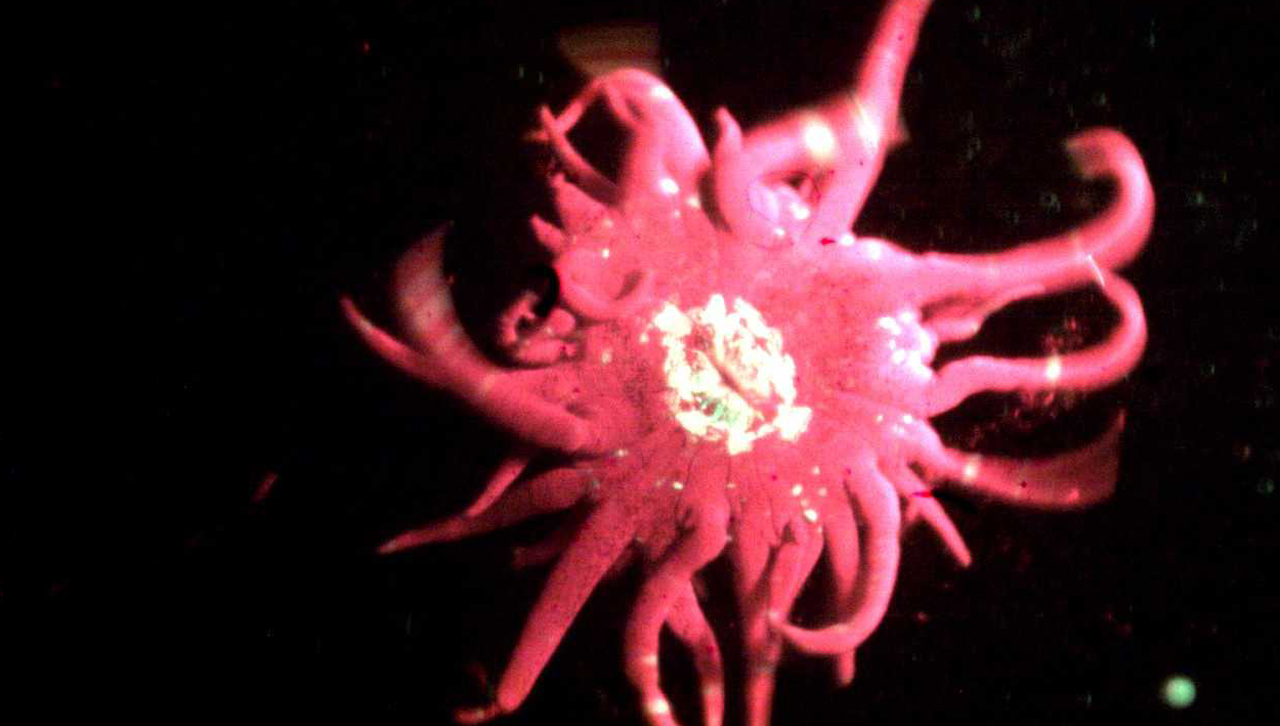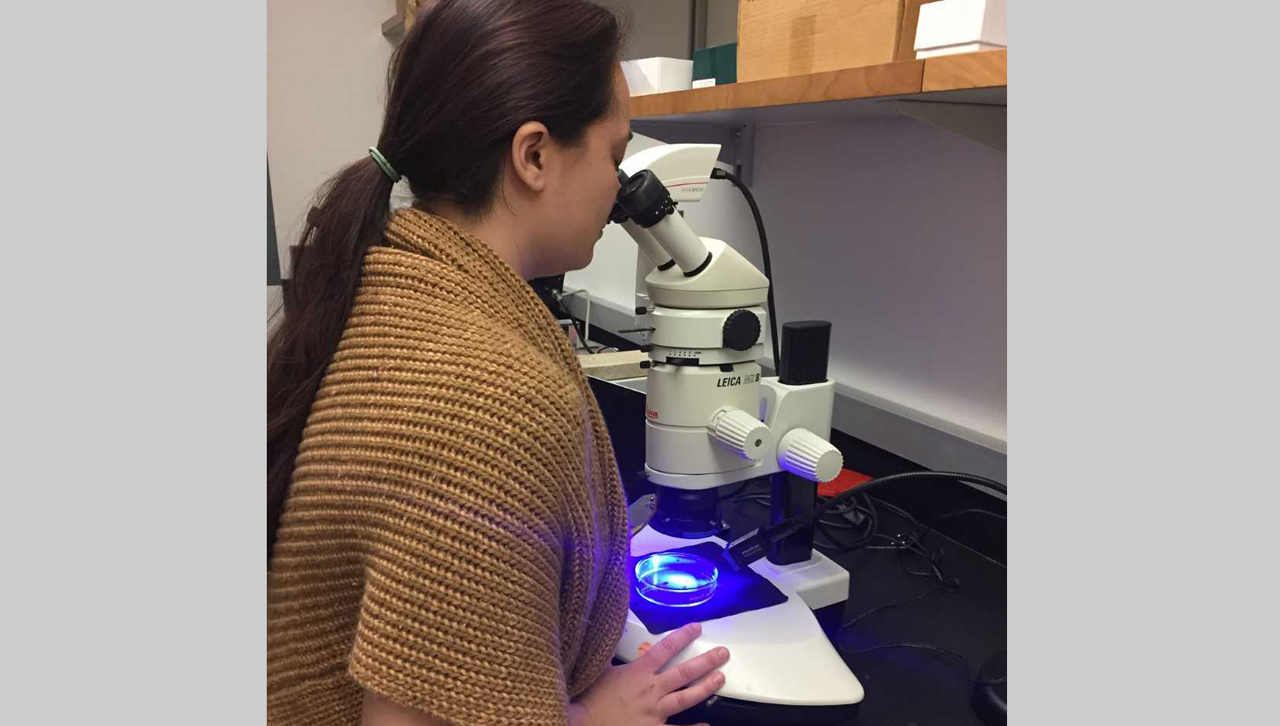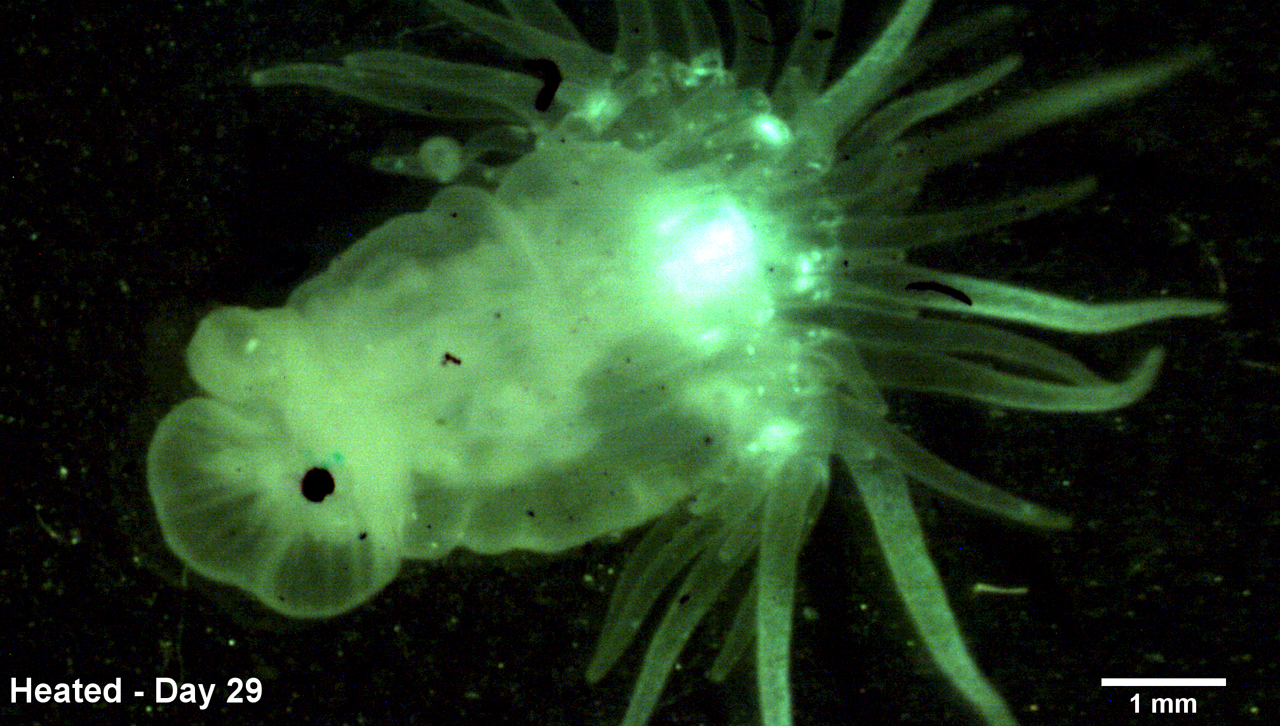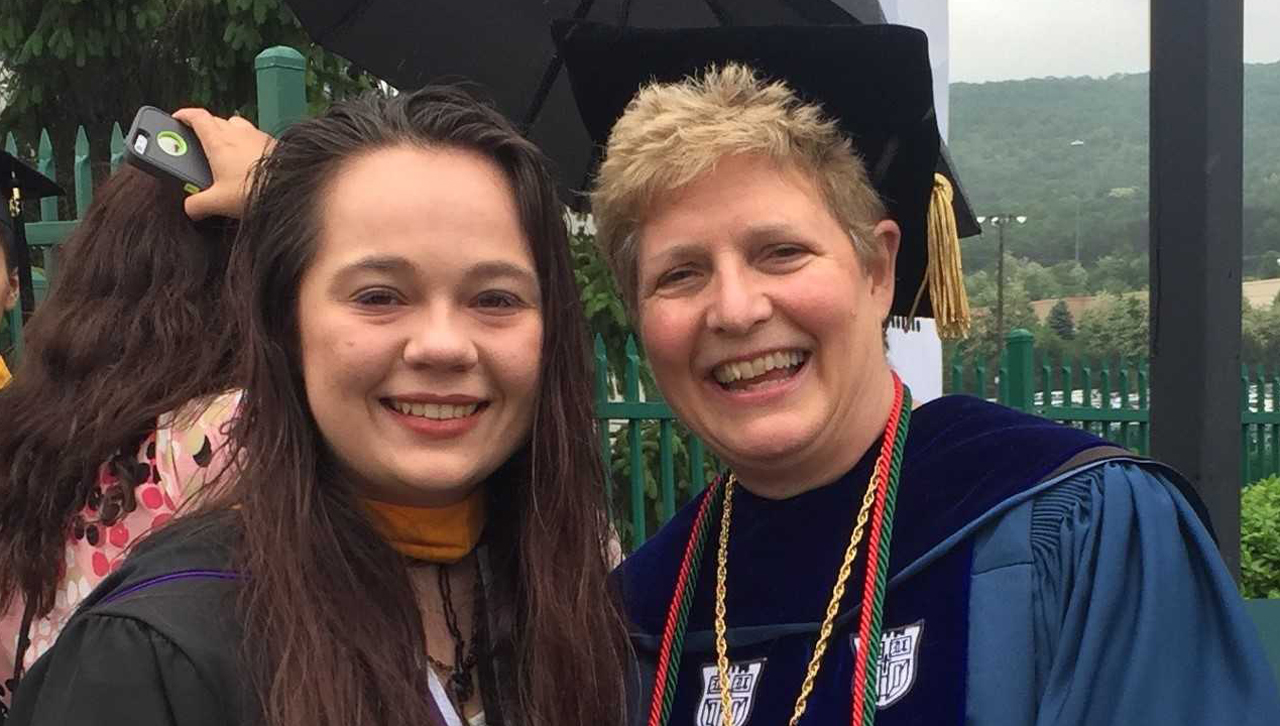Professor Voltzow Talks Climate Change and Marine Organisms

Dr. Voltzow discusses her intersession research on the effects of increased temperature and carbon dioxide on bleaching of sea anemones.
Effects of increased temperature and carbon dioxide on bleaching of sea anemones:
Climate change is affecting marine organisms in two related ways. As the atmosphere warms, the oceans absorb that heat, causing an increase in the temperature of the surface waters. The increase in carbon dioxide in the earth’s atmosphere has also significantly changed ocean chemistry. Carbon dioxide dissolves easily in seawater and enters a series of reactions that until recently keep the pH, or acidity, of the oceans relatively stable. Current conditions, however, have tipped that balance, so that as more and more carbon dioxide becomes dissolved in the ocean, the pH of the ocean has changed toward being more acidic, a process known as “ocean acidification.” These changes in temperature and pH are having a series of effects on marine organisms from the poles to the tropics. Corals and their relatives the sea anemones are facing a multitude of threats, including a phenomenon known as bleaching. These animals house tiny photosynthetic organisms called dinoflagellates within their cells in a symbiotic relationship in which they can absorb the wastes of the coral or anemone and provide basic organic molecules that can be used by the animal. The dinoflagellates have
To model the effects of estimated future climate conditions of increased temperature and reduced pH we have been experimenting with sea anemones of the species Exaiptasia
This work is a joint project that was initiated by Laura Romanovich '18. Laura approached me because she was interested in climate change and its effects on coral reefs. Since coral reefs are difficult to find in Scranton, we decided to use sea anemones as models for coral. Laura and I figured out how to carefully control the temperature and carbon dioxide levels in small tanks of anemones and developed the methods to measure their responses. The first set of experiments provided the data for her Honor’s thesis. We are refining this system and, with Robert Rade, Class of 2020, are working to quantify the numbers of dinoflagellates present in the anemones during the bleaching process.









